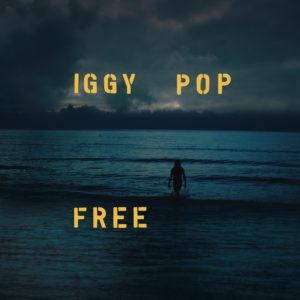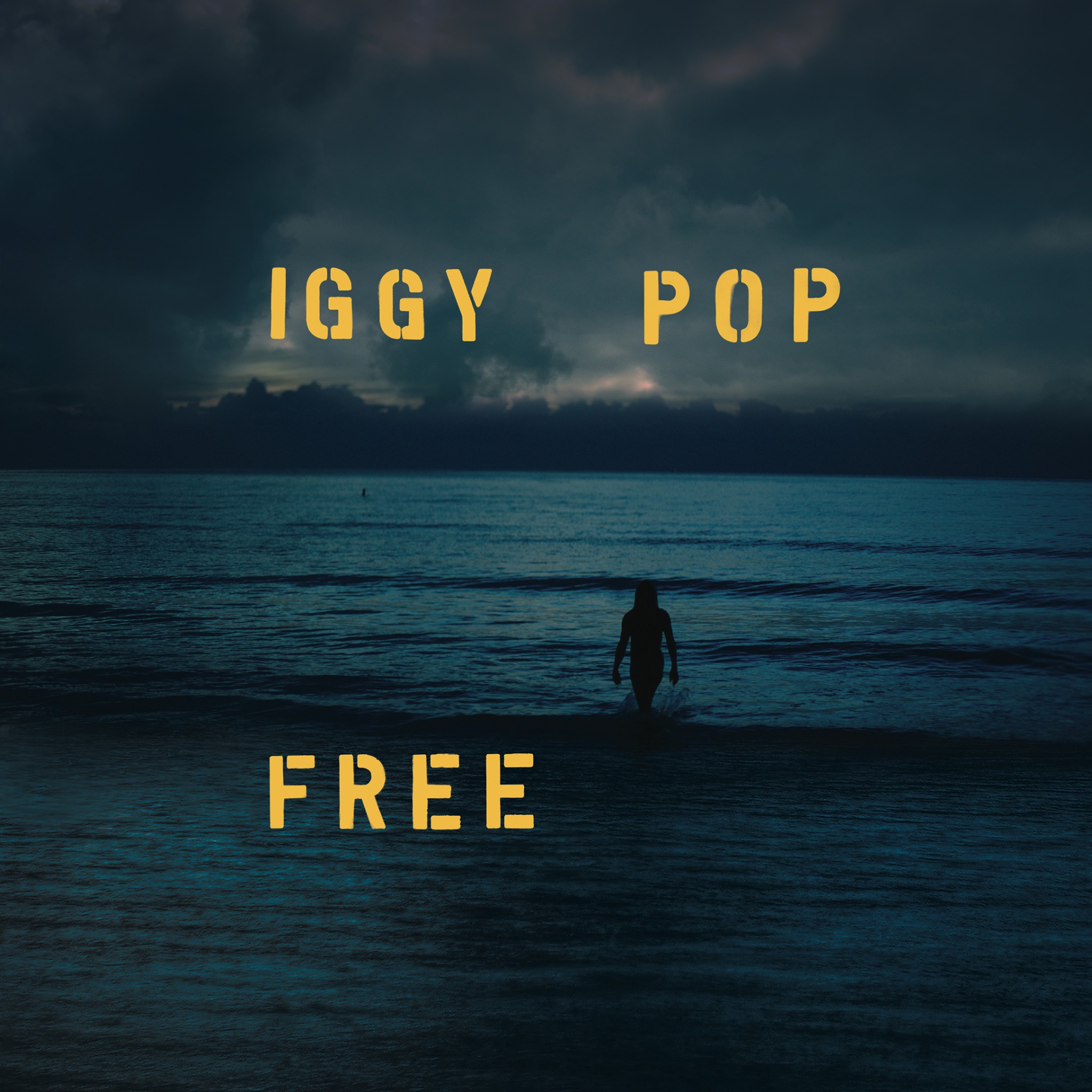Iggy Pop
Free
LOMA VISTA
7/10
“I wanna be free.”
That’s the first thing you hear from Iggy Pop on the new album. Against a bank of silvery synths and a muted trumpet’s blare, the wiry, deep-voiced Pop sing-speaks that phrase until it becomes a stage whisper. But before we go any further, let me ask you: If Iggy Pop hasn’t been free this whole time, who the fuck has?
The world’s forgotten boy with a heart full of napalm. The idiot and his lust for life. The Stooge who wanted to be your dog. A septuagenarian who, even after 2016’s raging Post Pop Depression, showed few signs of slowing despite that album and tour’s feel for goodbyes.
The freedom Pop seems to seek, and has finally found, is from an addictive past in New York City (he’s lived and thrived in Miami since 1995), the tentacles of the record industry, the psychic load that is relentless touring, and what he’s called “the problem of chronic insecurity that had dogged my life and career for too long.”
This time, Pop’s focus finds itself on the hardened edge of a path he’s taken before: the searing spoken-word of 1999’s Avenue B, and the jazzier leanings of 2009’s Préliminaires and 2012’s Après. His voice now often has the chatty warble familiar to BBC Radio listeners of “Iggy Confidential.”
Pop’s famed, quavering vibrato and toned-talking “you’ve done it all” soliloquy gives the subtly melodic “Page” the feel of an actor at the end of his rope, or even a Sinatra going about his way. The Lou Reed–written “We Are the People,” too, has a thespian’s roll to it, just Iggy, his piano, and Leron Thomas’ trumpet playing into the night, talking about lies and desperation. But Pop’s quiet rant about life’s heavy emptiness is focused on “moving beyond national pride” and into something absurd, evil, and scabrous. (One should add here that Leron Thomas wrote nearly half of Pop’s lyrics for Free, an odd move for Pop and an honor for the Houston-based jazzbo).
The chugging electric guitar riff (thanks to ex-Parts & Labor guitarist Noveller, who wrote much of the music on Free) and drum thwack of “Loves Missing” pairs rhythmically with the Pop-penned tales of “clocks ticking.” It’s a handsome union, that taut clicking and the Ig’s tight warble (think Bowie’s “Valentine’s Day”). With a trumpet’s soft toot prancing like a tap dancer across the pulse, it’s an awesome noise, a trajectory which, when sailing upwards, opens itself to greater tension, and Iggy’s more dramatic yelping, as he howls, “She’s thinking, and that’s not gonna help.”
It’s a lovelier, higher lilt in his voice, a reflection of spending time on a freeway, and an acoustic post-jungle rhythm that gives “Sonali” its literal moment in the sun. Even when he’s unhappily on the outs, he’s at least poetic enough to sound giddy about it: “She won’t take my calls when I am tipsy, cuz she’s on the wagon, and dressed as a gypsy.”
Such gentle humor drifts hypnotically into the simple, spare “James Bond,” a deceptively infectious track that finds Pop toying with something of an accent (or not? After a dozen listens I still can’t say) while intoning tales of spies in the house of love, and flavors sweet to the taste and bitter to the gut. An even sparer sound, that of a blip and a twinkle, drifts in the background of “Glow in the Dark,” a tone poem where Iggy’s barren voice speaks volumes about his present condition with lines such as, “I’m not exempt from the whitest of noise.” That noise catches up with Pop as a tangle of trumpets and grouchy guitars conclude the song, which feels only fitting for a man who just mumbled, “Your sense of community is going to kill you.”
On “Dirty Sanchez,” the trumpeter turns into Herb Alpert and goes for the twin toreador rush, a dancing tone perfect for Free’s most aggressive vocal. Against a military drum tap and a male choir, Iggy stretches out his vowels like vintage Dylan, screams in a high whinny, and hollers about success by default and various body parts in accord with his ‘Godfather of Punk” reputation.
Forget reputation. Fuck reputation. On the Pop-penned “The Dawn,” the album’s funereal last track, Iggy reminds the listener that he will never rest upon his laurels or lay down on the job—for, like a shark, to stop means to die. “In my stage of the game, you don’t point out memories,” rattles Iggy with what sounds like a score’s outtake from Blade Runner behind him. As he ends that tune with “Love and sex are gonna occur to you, and neither one will solve the darkness,” you’re tempted to hear a wise man’s musings, and to think of this as elegiac and doomy, his Blackstar. But Iggy isn’t leaving anytime soon. He’s got too many stabs at love and sex left to take.







